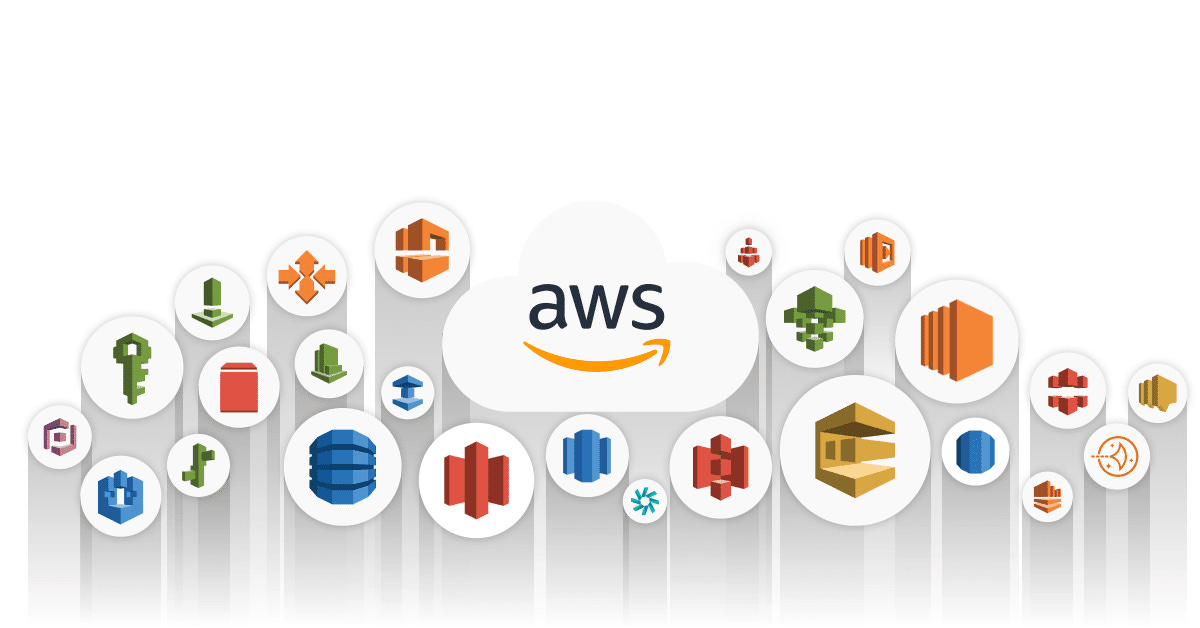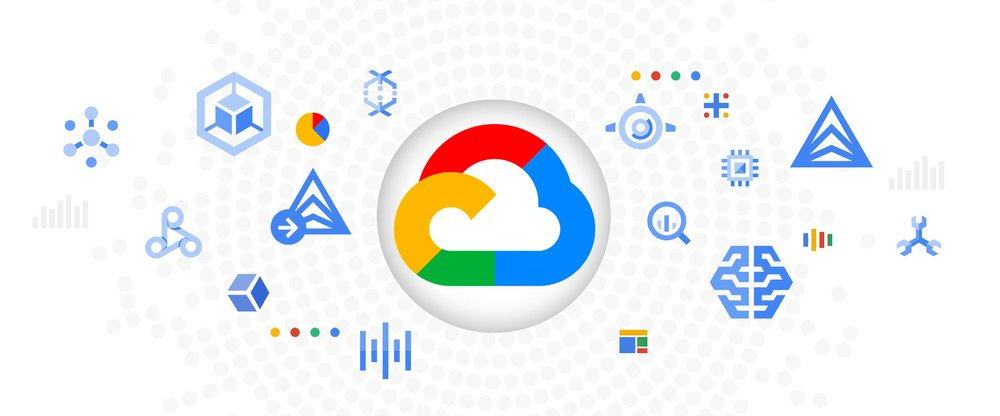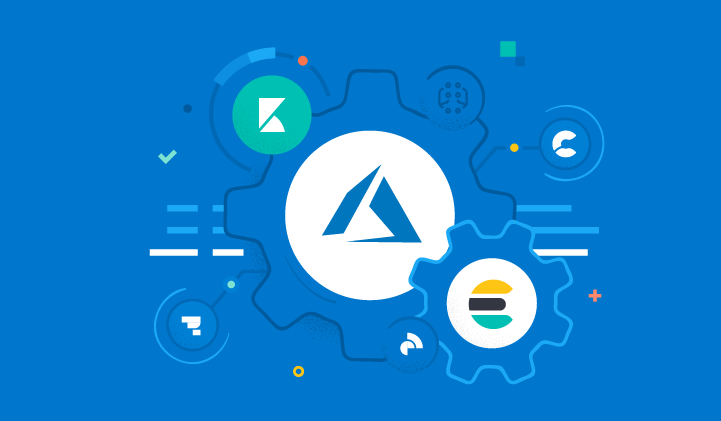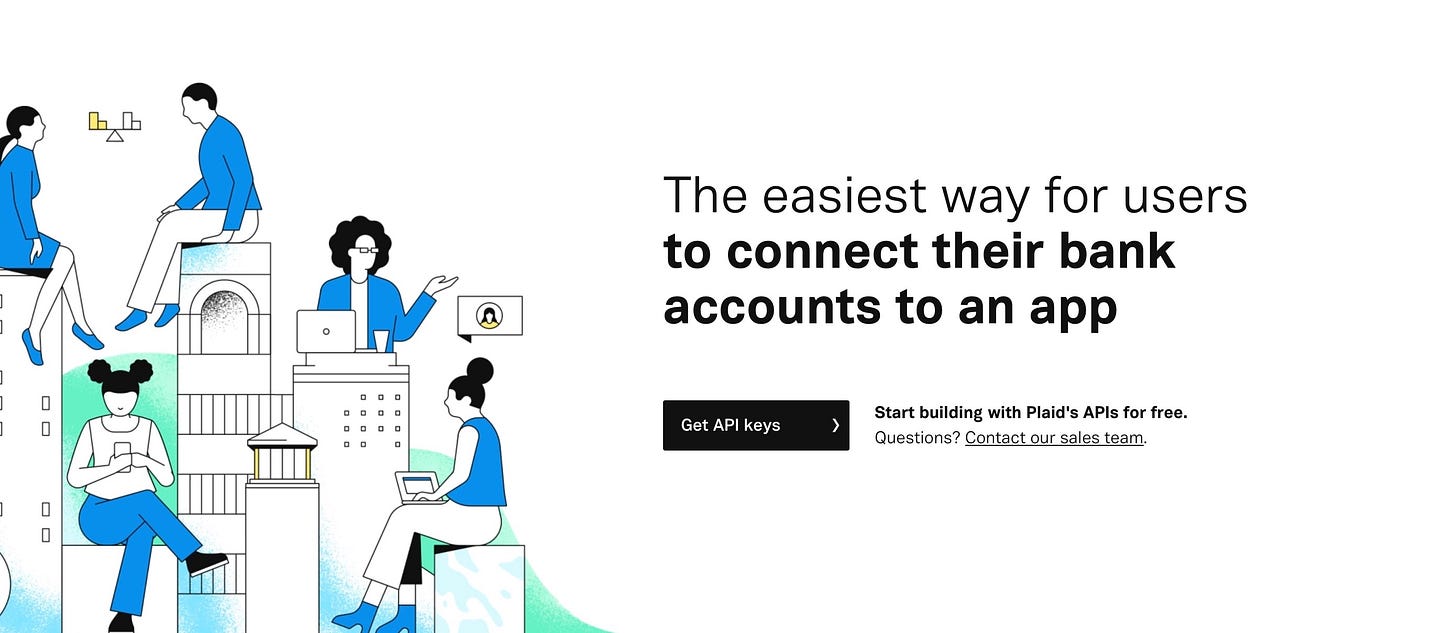How Far API-First Companies Have Come
Breaking down the API economy in 2022.
Welcome to the March edition of ‘The API Economy’!
Be one of the early (now that it’s too late to be one of the first 😊) interested, forward-thinking people, to subscribe to the newsletter.
A couple of years ago, a piece written by Daniel Levine of Accel titled ‘APIs are the next big SaaS wave’ got me excited. Not because he was pitching the success of Accel’s platform funding strategy (which he clearly was), but because the platforms he mentioned how API-driven companies have grown to be some of the biggest companies in tech.
It was the first time someone broke down APIs for me in a way that helped me grasp how powerful these types of companies really were (and more importantly, how big they can become) when he stated:
Whether you realize it or not, chances are that your favorite consumer and enterprise apps—Uber, Airbnb, PayPal, and countless more—have a number of third-party APIs and developer services running in the background. Just like most modern enterprises have invested in SaaS technologies for all the above reasons, many of today’s multi-billion dollar companies have built their businesses on the backs of these scalable developer services that let them abstract everything from SMS and email to payments, location-based data, search and more.
Simultaneously, the entrepreneurs behind these API-first companies like Twilio, Segment, Scale and many others are building sustainable, independent—and big—businesses.
When I read this, I thought, ‘wow, all the technology I use is mostly an array of API calls being orchestrated in the background with a simple UI overlay.’ Which made me wonder, how big have the biggest API first companies & products gotten since 2015?
As a starting point, I used this image from Accel’s APX conference in 2015 which showcased some of tech’s best & brightest while they were still relatively unknown.

I decided to start here and check in on some of these companies + more to see:
How big have they grown since 2015? Have they outpaced the market?
Have they gone public or raised more capital? If so, what are their valuations now?
Have they acquired any companies or been acquired?
After some initial research, I’m sure you won’t be surprised to hear they are ALL doing incredible things. But I think you’ll be surprised to learn how truly meteoric their success has been.
The TL;DR is that on average, they’ve grown 100x+ in valuation…
So let’s check in on these companies and see how they’re doing in 2022.
The top 10 API-first companies & products:
This list is meant to be a sort of glossary of API-first success. We’ll talk about the biggest companies in the world, the ones who are on the cusp, and then the up-and-comers in the space.
Let’s start with the top 10.
#1 — Amazon Web Services (AWS)
Run Rate in 2015: $5B
Run Rate today: $71B [$1T Valuation?]
Since 2015, AWS’s run rate & valuation have 14x’d.
In a recent article titled ‘From movies to shipping, AWS is driving Amazon’s revenue diversification’ Techcrunch reported:
“Last week, the company reported quarterly revenue of almost $140 billion. Let’s start with its cloud business (AWS), which generated top line of $17 billion, up 40% year over year in Q4 2021. That result put AWS on a run rate of over $70 billion, up from the $51 billion pace on which it closed 2020.”
AWS is clearly the leader in the cloud infrastructure category, one which leads this list for API-first companies & products. Over the next 5 years, don’t be surprised if AWS blows by Amazon retail from a profit & revenue perspective.
Since it’s hard to put a valuation on a product at a big company like Amazon, we took their estimated revenue and applied a 14x multiple (a very conservative estimate compared to market valuations in 2021 & 2022) — giving AWS alone a $1T valuation. (A similar approach was taken with the top 3 companies, which have the same circumstances.)
#2 — Google Cloud (GCP)
Valuation in 2015: Undisclosed (GCP revenue was revealed for the first time in 2017)
Valuation Today: $235B (estimates)
The Google Cloud Console provides a web-based, graphical user interface that you can use to manage your Google Cloud projects and resources. As the second most valuable company in the elusive cloud computing war, GCP alone is worth an estimated $235B.
The majority of tech companies will tell you their infrastructure is built on AWS or GCP, but many of the big players are moving towards a multi-cloud strategy making the market less ‘winner-take-all’ and leaving room for a number of companies in the space to be successful.
The leaders in Cloud Infrastructure are going to be the ones who dominate SaaS in the years to come.
#3 — Microsoft Azure
Valuation in 2015: Undisclosed
Valuation Today: $100B (estimates)
The Azure cloud platform is more than 200 products and cloud services designed to help you bring new solutions to life—to solve today’s challenges and create the future. Build, run, and manage applications across multiple clouds, on-premises, and at the edge, with the tools and frameworks of your choice.
Run by Microsoft, Azure is one of their fastest-growing and most profitable lines of business. Although they are currently in third for the cloud computing race, they still are assumed to be valued at $100B+. Not bad for finishing third.
#4 — Stripe
Valuation in 2015: $3.6B
Valuation Today: $100B (28x)
Since 2015, Stripe’s valuation has 28x’d.
Valued today at over $100 billion, Stripe is the biggest independent API-first company. Stripe took off due to its initial laser focus on the developer experience setting up and taking payments. It was initially known as /dev/payments.
Pictured as the poster-child of API-first companies by many, Stripe continues to lead the space and show just how big developer-focused companies can become.
#5 — Checkout.com
Valuation in 2015: Undisclosed (no data, they didn’t raise their $230M Series A until 2019)
Valuation Today: $40B
Since 2015, Checkout.com has grown over 100x.
Similar to Stripe, Checkout.com offers payments for the digital economy.
When Checkout.com launched as a cloud-based payments platform in 2012, their founder Guillaume Pousaz couldn't foresee the speed of global digitization. From the ecommerce boom and our growing obsession with digital experiences, through the rise of web3 and cryptocurrency to the dawn of the metaverse, the transformation is real – and the pace of change is only accelerating.
Raising $1B in their recent Series D, Checkout.com is valued at $40B on the private market.
Note, in the ‘So who’s next’ section — we list Circle (now valued at $9B+) as the company evolving rapidly in the blockchain/crypto side of this space.
#6 — Twilio
(who has since acquired Segment for $3.2B & SendGrid for $2B)
Valuation in 2015: $500M
Valuation (Market Cap) Today: $35.1B
Since 2015, Twilio’s valuation has 70x’d. It has also acquired two other top API companies — Segment & SendGrid.
Twilio is a single platform with flexible APIs for any channel, built-in intelligence, and global infrastructure to support you at scale. Their APIs allow you to create the exact solution you need to engage customers at every step of their journey.
As the biggest API-first company on the list that’s publicly traded, Twilio has no signs of slowing down, just should ‘ask your developer’.
#7 — Okta
(who has since acquired Auth0)
Valuation in 2015: 1.2B
Valuation Today (Market Cap): $29B
Since 2015, Okta has grown 24x and acquired a developer favorite API-first company, Auth0.
Okta is the platform trusted to secure every identity with SSO, Multi-factor Authentication, Lifecycle Management, and more.
In order to enable their customers and partners to address every identity use case, they've built a set of modular components, called Platform Services, which can be combined to build new features and tailored experiences faster. These Platform Services are available in Okta's packaged products, APIs, and SDKs.
Okta went public in April of 2017 and has since seen its market cap balloon to $29B+.
#8 — Plaid
(who has since almost been acquired by Visa)
Valuation in 2015: Undisclosed ($12M Series A)
Valuation Today: $13.4B
Since 2015, Plaid has grown over 100x.
Plaid is the safer way for people to connect financial accounts to an app. They provide developers with the tools they need to create easy and accessible experiences for their users. Today, tens of millions of people in North America (and counting) have successfully connected their financial institutions to apps they love using Plaid.
In 2021, Plaid was almost acquired by Visa for $5.3B but The Justice Department alleged that acquiring Plaid would allow Visa to unlawfully maintain a monopoly in the online debit-card market.
Since then, Plaid had raised its $425M Series D from Altimeter as it charts a post-Visa future at a staggering $13.4B valuation.
#9 — Zapier
Valuation in 2015: Undisclosed ($1M Seed)
Valuation Today: $7B (Estimate)
Since 2015, Zapier has grown over 100x.
Zapier offers an array of APIs for you to easily automate tasks for people who are too busy to do them manually. Zapier moves information between your web apps automatically, so you can focus on your most important work.
#10 — Airtable
Valuation in 2015: Undisclosed ($7.6M Series A)
Valuation Today: $11B
Since 2015, Airtable has grown over 100x.
Airtable is a platform for building collaborative applications and was built to end boring spreadsheets. They allow you to integrate with all your favorite apps and services.
The space is crowded, but Airtable is the clear leader fending off competitors like Rows, Smartsheets, and Coda who have all raised at $1B+ valuations. Airtable leads the pack coming off their Series F at the end of 2021 valuing the company at $11B.
Bonus: companies that just missed the top 10:
Checkr
Valuation in 2015: Undisclosed ($9M Series A)
Valuation Today: $4.6B
Since 2015, Checkr has grown over 100x.
Checkr's API helps tech companies hire faster. Their easy-to-use and scalable API enables integrations with leading ATS & HRIS platforms and powers over 1.5 million background checks every month.
In 2021, Checkr casually raised their Series E for $250M at a $4.6B valuation showing it pays to stay the course and focuses on the areas you dominate.
Algolia
Valuation in 2015: Undisclosed ($2M Seed)
Valuation Today: $2.25B
Since 2015, Algolia has grown over 100x.
Algolia’s enterprise search connects your customers to the right content and your employees to the right information. Their search API is built to power some of the largest eCommerce companies in the world.
Algolia has raised a $150 million Series D funding round at a post-money valuation of $2.25 billion. Compared to the Series C round from October 2019, the company’s valuation has more than quadrupled.
And where are some of the ‘Rising Stars’ since 2015?

Clearbit
Valuation in 2015: Undisclosed ($2M Seed)
Valuation Today: $250M (Series A valuation, raised in early 2019)
Cloudinary
Valuation in 2015: Undisclosed (bootstrapped)
Valuation Today: $1B (estimates)
Coda
Valuation in 2015: Undisclosed ($35M Series B)
Valuation Today: $1.4B
Rows (formerly Dashdash)
Valuation in 2015: $0 (Founded in 2016
Valuation Today: Undisclosed ($16M Series B, raised in 2021)
EasyPost
Valuation in 2015: Undisclosed ($850k seed round)
Valuation Today: Undisclosed ($9M Series A, prepping for IPO)
Kong
Valuation in 2015: $0 (Founded in 2017)
Valuation Today: $1.4B
MessageBird
Valuation in 2015: Undisclosed (Raised pre-seed in 2016)
Valuation Today: $3.8B
Radar
Valuation in 2015: $0 (Started in 2016)
Valuation Today: $365M
Shippo
Valuation in 2015: Undisclosed ($2M seed round)
Valuation Today: $1B
Tray
Valuation in 2015: Undisclosed ($2.2M seed round)
Valuation Today: $600M+
*The trend with all these companies seems to be 100x+ growth on average.
So who’s next?
Similar to the bold predictions that were made by Accel in 2015, can we make similar guesses in 2022? You bet, but where can we find the latest and greatest API companies? Why not start on Twitter?
Techcrunch has recently stepped up their API storylines, including this prompt:
And when Alex from TC asks people to plug their startup, you better believe they come out in droves…
With hundreds of replies, there’s a treasure trove of gems I was able to look into. I thought this thread was a great place to review some new companies I’ve never heard of, add them to a list with the older companies I’ve researched & been involved with.
Here’s the exhaustive list of who has the potential to be the next Stripe:
For more information, see this TechCrunch article, the index of API-first companies GGV built, CB Insight’s Fintech Infrastructure Market Map, or just follow Packy at Not Boring since he’s written about a large portion of these companies.
APIs have become the biggest offerings in SaaS. And I can’t wait to check in on every company mentioned in the essay in the coming years.
For some additional context and research conducted post this essay going live, SaaStr reports that top SaaS companies have an average of 350 integrations and the biggest names in tech have well over 1,000 integrations:

Thanks for reading — until our next adventure.
P.S. thanks to mama Schroeder for editing The API Economy.
















